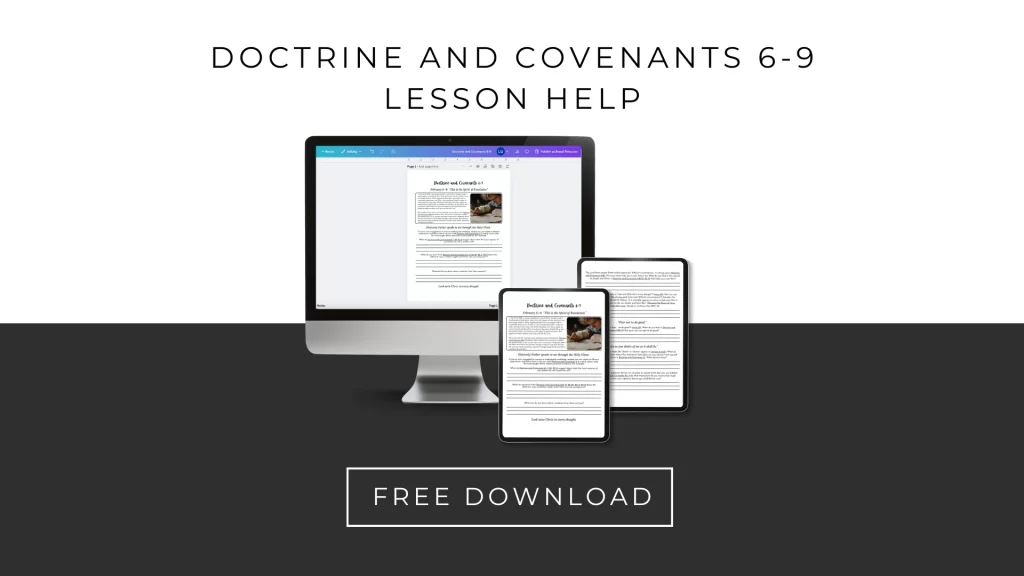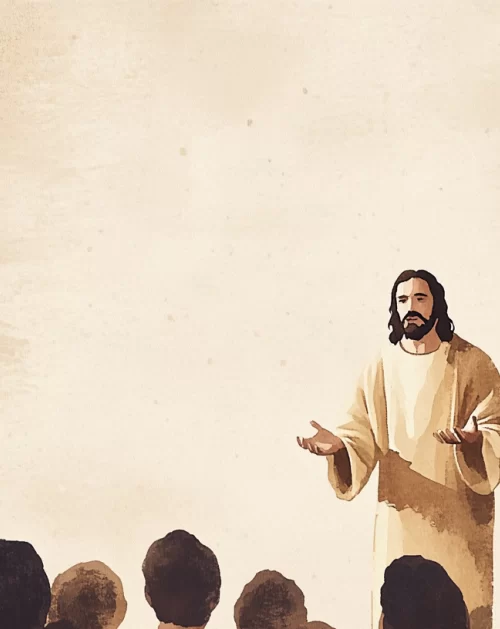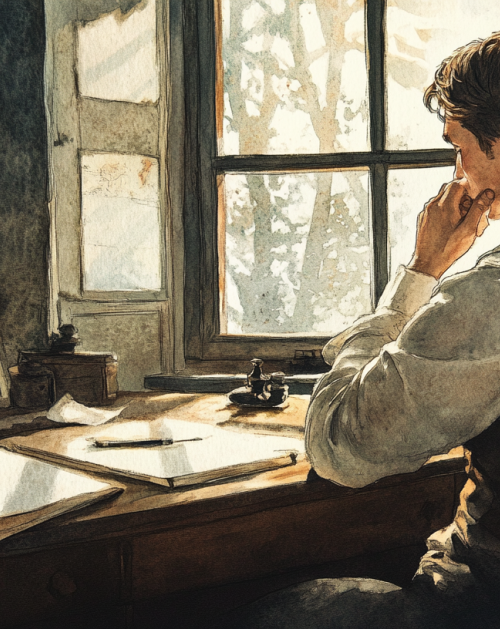
In this post, we’ll be deep diving into Doctrine and Covenants 6-9. To download our free PDF and Canva Template Lesson Help, click here: https://otherthanamom.myflodesk.com/dandc6-9

Heavenly Father speaks to me through the Holy Ghost.
Engaging Questions:
- What do you learn from Doctrine and Covenants 6–9 about how Heavenly Father communicates with us through the Holy Ghost?
- Have you ever had an experience where you felt the Holy Ghost guiding you? What did you learn from that experience?
- In Doctrine and Covenants 6:22–23, the Lord reminds Oliver Cowdery of a past spiritual confirmation. How can remembering spiritual experiences help you when you’re facing doubts or challenges?
- What do Doctrine and Covenants 8:2–3 teach about how the Holy Ghost works with both your mind and your heart? How have you experienced this?
- What role does faith play in receiving guidance and answers from the Holy Ghost?
- How can you better recognize the promptings of the Holy Ghost in your daily life?
- Why do you think it’s important to act on the promptings you receive from the Holy Ghost, even if they seem small or unclear?
- What practices, such as prayer or scripture study, help you feel more in tune with the Holy Ghost? How can you make those practices more consistent?
- How can you help others recognize when Heavenly Father is speaking to them through the Holy Ghost?
- What steps can you take this week to seek and follow the guidance of the Holy Ghost more faithfully?
Object Lessons:
1. The Whisper (The Quiet Voice of the Spirit)
Materials Needed: None.
Speak in a soft whisper and ask the group to listen closely. Discuss how the Holy Ghost often communicates through a still, small voice, requiring us to quiet our minds and focus to hear His promptings.
Lesson: The Holy Ghost speaks gently, and we need to listen carefully to recognize His guidance.
2. The Breeze and the Leaves (The Spirit is Felt, Not Seen)
Materials Needed: A fan or a handheld object to create a breeze and lightweight leaves or paper.
Use the fan to move the leaves, showing how the breeze is unseen but its effects are clear. Compare this to how the Holy Ghost works invisibly, yet His influence is evident in our lives.
Lesson: Though we cannot see the Holy Ghost, we can feel His presence and recognize His guidance.
3. The Flashlight in Darkness (Illuminating Our Path)
Materials Needed: A flashlight.
Turn off the lights and use the flashlight to illuminate the way. Explain how the Holy Ghost acts as a spiritual guide, shining light on the correct path when we are uncertain or in darkness.
Lesson: The Holy Ghost provides clarity and direction, helping us make righteous choices.
4. The Mirror (Reflecting God’s Will)
Materials Needed: A clean mirror.
Show the mirror and explain how it reflects light. Discuss how the Holy Ghost reflects God’s will to us, helping us understand His desires for our lives. A dirty or smudged mirror may represent distractions or sin that make it harder to hear the Spirit.
Lesson: Keeping our hearts pure allows the Holy Ghost to reflect God’s guidance clearly.
5. The Seed and Growth (The Spirit Nurtures Our Testimonies)
Materials Needed: A small seed and a potted plant.
Show the seed and explain how it needs water and care to grow. Compare this to how the Holy Ghost nurtures our faith and testimony when we study the scriptures, pray, and live the gospel.
Lesson: The Holy Ghost helps our testimonies grow, like a seed that flourishes when nourished.
Personal Sharing Prompts:
- Think of a time when you prayed for guidance and felt the Holy Ghost confirm the answer in your heart or mind. How did that experience strengthen your testimony of personal revelation?
- Think of a time when you felt the Holy Ghost bring you peace during a challenging situation. How did that reassurance help you move forward with faith?
- Think of a time when you received a prompting from the Holy Ghost to act. How did following that prompting bless you or someone else?
- Think of a time when studying the scriptures helped you recognize the Holy Ghost speaking to you. How did that moment deepen your relationship with Heavenly Father?
- Think of a time when the Holy Ghost warned you of danger or helped you avoid making a wrong choice. How did that experience help you trust in God’s guidance?
- Think of a time when you felt the Spirit confirm the truth of something you learned or heard in Church. How did that confirmation increase your understanding and faith?
- Think of a time when you were seeking answers but felt the Holy Ghost encourage you to be patient. How did that experience help you learn to trust in the Lord’s timing?
- Think of a time when you felt inspired to comfort or serve someone because of a prompting from the Holy Ghost. How did acting on that prompting help you feel closer to Heavenly Father?
- Think of a time when the Holy Ghost helped you recall something you had studied or learned at the exact moment you needed it. How did that experience increase your confidence in relying on the Spirit?
- Think of a time when you felt the Holy Ghost testify of the Savior’s love for you. How did that moment impact your faith and trust in Jesus Christ?
Look unto Christ in every thought.
Engaging Questions:
- What does it mean to you to “look unto Christ in every thought” (Doctrine and Covenants 6:36)? How can this help you in your daily life?
- How do Doctrine and Covenants 6–9 help you better understand Christ’s role as your guide and source of peace?
- What are some practical ways you can focus on Christ throughout your day, even during busy or stressful moments?
- Have you ever experienced a time when turning your thoughts to Christ helped you overcome fear or doubt? What happened?
- Doctrine and Covenants 6:34–37 speaks of not fearing but trusting in Christ. What fears or worries can you give to Him today?
- How can remembering Christ’s example inspire you to make better decisions and strengthen your faith?
- What role does prayer play in helping you keep Christ at the center of your thoughts and actions?
- When you feel distracted or overwhelmed, how can you refocus your thoughts on Christ?
- What scriptures or hymns help you feel closer to Christ and remind you to turn to Him in all things?
- What can you do this week to develop a habit of thinking about Christ more consistently in your life?
Object Lessons:
1. The Compass (Christ as Our North Star)
Materials Needed: A compass.
Show the compass and explain how it always points north, no matter how it is moved. Compare this to focusing on Christ in every thought—He is our constant spiritual “North Star” who guides us back to God.
Lesson: Just as a compass keeps us oriented, looking unto Christ in every thought helps us stay on the covenant path.
2. The Lighthouse (Christ’s Steady Guidance)
Materials Needed: A picture or model of a lighthouse.
Explain how a lighthouse provides constant guidance to ships in rough seas. Compare this to Christ, who is always there to guide us safely through life’s challenges if we focus on Him.
Lesson: When we focus on Christ, He helps us navigate life’s storms and find safety.
3. The Mirror (Reflecting Christ in Our Lives)
Materials Needed: A clean mirror.
Hold up the mirror and explain how it reflects light clearly. Discuss how focusing on Christ allows His light to reflect in our thoughts and actions, influencing how we interact with others.
Lesson: Looking unto Christ helps us reflect His teachings and love to those around us.
4. The Sunflower (Turning Toward Christ)
Materials Needed: A sunflower or a picture of one.
Explain how sunflowers always turn toward the sun. Compare this to how we can turn toward Christ in every thought, seeking His light to grow spiritually.
Lesson: Like the sunflower seeks the sun, we can seek Christ in every thought and find nourishment for our souls.
5. The Anchor (Christ as a Source of Stability)
Materials Needed: A small anchor or a picture of one.
Show the anchor and explain how it keeps a ship steady in rough waters. Compare this to how looking unto Christ provides spiritual stability and peace during life’s challenges.
Lesson: Focusing on Christ anchors us and gives us strength to overcome difficulties.
Personal Sharing Prompts:
- Think of a time when you felt overwhelmed or uncertain and turned to Christ for strength. How did focusing on Him help you find peace and direction?
- Think of a time when you were tempted to doubt or fear but chose to focus on the Savior instead. How did that decision change the outcome or your perspective?
- Think of a time when you sought Christ’s help in prayer during a difficult situation. How did you feel His guidance or comfort in response?
- Think of a time when you were inspired by someone else who consistently kept Christ at the center of their life. How did their example influence your own efforts to “look unto Christ in every thought”?
- Think of a time when you felt the Holy Ghost remind you of the Savior’s love for you. How did that reminder help you refocus on Him?
- Think of a time when you faced a decision and tried to ask, “What would Christ have me do?” How did following that impression bless you or others?
- Think of a time when you felt your thoughts become more Christlike through scripture study or prayer. How did that experience help you grow closer to Him?
- Think of a time when you struggled with negative thoughts but chose to turn your mind to the Savior instead. How did that shift in focus bring you peace or strength?
- Think of a time when you participated in the sacrament or temple worship and felt inspired to focus more on Christ in your daily life. How did that experience help you stay centered on Him?
- Think of a time when remembering Christ’s example helped you respond with kindness or patience in a challenging situation. How did striving to emulate Him change the outcome?
“Fear not to do good.”
Engaging Questions:
- What does the phrase “fear not to do good” (Doctrine and Covenants 6:33) mean to you personally? How does it encourage you to act?
- Have you ever felt hesitant to do something good because of fear or uncertainty? What helped you overcome it?
- What do you learn from Doctrine and Covenants 6:33–37 about how the Lord supports and strengthens those who act in faith?
- Why do you think fear can sometimes hold us back from doing good? How can turning to the Lord help us overcome those fears?
- What experiences have you had where doing good—even when it was hard—brought you closer to Christ?
- In what ways can small, simple acts of goodness make a big difference in your life or the lives of others?
- What role does the Holy Ghost play in guiding you to recognize opportunities to do good? How can you become more aware of these promptings?
- How can you encourage others to “fear not to do good” when they feel uncertain or afraid?
- What specific opportunities do you have this week to “do good,” and how can you approach them with faith and courage?
- How does trusting in God’s promises in Doctrine and Covenants 6:34–37 help you feel more confident in doing good, even in challenging circumstances?
Object Lessons:
1. The Flashlight in the Dark (Illuminating Good Works)
Materials Needed: A flashlight.
Turn off the lights or dim the room, then turn on the flashlight. Explain how even a small amount of light dispels darkness. Compare this to doing good—our efforts, no matter how small, can bring light to others’ lives. Encourage participants to act without fear because their goodness can make a difference.
Lesson: Even small acts of goodness can have a powerful impact, and we should not fear to let our light shine.
2. The Seed and Growth (The Impact of Good Deeds)
Materials Needed: A small seed and a potted plant.
Show the seed and explain how planting it represents doing good. It may seem small at first, but over time it grows into something much larger. Compare this to the long-term impact of good works, which often grow beyond what we can see immediately.
Lesson: Acts of goodness, like seeds, grow into something beautiful and impactful over time, so we should not hesitate to do good.
3. The Domino Effect (Spreading Goodness)
Materials Needed: A line of dominoes.
Set up the dominoes and tip the first one to show how one action sets off a chain reaction. Explain how one act of kindness or goodness can inspire others to do the same, creating a ripple effect.
Lesson: Doing good inspires others to act in kind, spreading goodness far and wide.
4. The Mirror (Reflecting Christ’s Example)
Materials Needed: A clean mirror.
Hold the mirror and explain how it reflects light. Discuss how our actions reflect the light of Christ. When we do good, we reflect His example and influence others positively.
Lesson: Doing good allows us to reflect Christ’s love and light, inspiring others to do the same.
5. The Anchor (Goodness Grounds Us)
Materials Needed: A small anchor or picture of one.
Show the anchor and explain how it holds a ship steady during a storm. Compare this to doing good works, which keep us spiritually grounded and connected to God, especially during difficult times.
Lesson: Choosing to do good, even when it’s hard, keeps us steady and strengthens our faith.
Personal Sharing Prompts:
- Think of a time when you felt prompted to do something good but were nervous or unsure. How did overcoming your fear and following the prompting bless you or someone else?
- Think of a time when you chose to stand up for what was right, even when it was difficult. How did you feel afterward, and how did it strengthen your faith?
- Think of a time when you hesitated to serve someone because you weren’t sure it would make a difference. How did acting anyway show you the impact of doing good?
- Think of a time when you reached out to help someone, even though it was inconvenient or uncomfortable. How did that experience help you grow in courage and love?
- Think of a time when you chose to share your testimony or beliefs despite fear of rejection or criticism. How did that decision affect you and the person you shared with?
- Think of a time when you were inspired by someone else’s courage to do good. How did their example motivate you to take action in your own life?
- Think of a time when you made a small effort to help someone and it turned out to be exactly what they needed. How did that experience teach you the power of doing good, even in small ways?
- Think of a time when you felt fear or doubt about your ability to serve in a calling or role. How did trusting in the Lord help you do good despite those feelings?
- Think of a time when you saw the positive ripple effects of a good deed you or someone else did. How did that experience inspire you to continue making a difference?
- Think of a time when the Holy Ghost prompted you to act quickly to help someone in need. How did responding to that prompting build your confidence in the Lord’s ability to work through you?
“Even as you desire of me so it shall be.”
Engaging Questions:
- What does the phrase “Even as you desire of me so it shall be” (Doctrine and Covenants 7:8) teach you about the importance of righteous desires?
- How do your desires influence the way you approach prayer and your relationship with Heavenly Father?
- In Doctrine and Covenants 6:5–8, the Lord encourages seeking Him with real intent. How can you align your desires with God’s will?
- Have you experienced a time when a righteous desire led to blessings in your life? What did you learn from that experience?
- How can you tell whether your desires are in harmony with what the Lord wants for you?
- What does Doctrine and Covenants 8:2–3 teach about how the Holy Ghost helps guide your desires and decisions?
- If the Lord asked you today about your greatest desire, what would you say? How can you work toward that desire in faith?
- How can focusing on righteous desires help you overcome doubts, fears, or distractions in your life?
- What role does gratitude play in refining your desires and recognizing God’s hand in your life?
- What steps can you take this week to align your desires more fully with God’s plan for you?
Object Lessons:
1. The Empty Cup (Filling Your Desires)
Materials Needed: An empty cup and a pitcher of water.
Show the empty cup and ask participants what they’d like it to be filled with (e.g., water, juice). Pour water into the cup and explain how Heavenly Father often blesses us according to our righteous desires. He knows our hearts and fills our lives with blessings when our desires align with His will.
Lesson: Our righteous desires invite God’s blessings, and as we seek Him with faith, He fulfills those desires in His time and way.
2. The Compass (Desire Guides Direction)
Materials Needed: A compass.
Show how the compass always points north, guiding travelers. Compare this to our desires, which guide the direction of our spiritual lives. If we desire to follow God, our lives will align with His will, just as the compass consistently points the way.
Lesson: Our desires set the direction of our lives, and when they are focused on God, He leads us to greater blessings and purpose.
3. The Garden (Cultivating Righteous Desires)
Materials Needed: Seeds, soil, and a small potted plant.
Show the seeds and explain that they represent our desires. Just as planting, watering, and nurturing the seeds lead to growth, cultivating righteous desires through prayer, scripture study, and obedience leads to blessings and spiritual growth.
Lesson: As we nurture our righteous desires with effort and faith, God helps them grow into blessings and opportunities.
4. The Magnifying Glass (Focusing Our Desires)
Materials Needed: A magnifying glass and a piece of paper.
Use the magnifying glass to focus light on the paper. Explain how focusing our desires on things that matter most, such as serving God and others, magnifies the Lord’s blessings in our lives.
Lesson: When our desires are focused on righteous goals, they are magnified, and we can accomplish great things with God’s help.
5. The Wind and Sail (Aligning Our Desires with God’s Will)
Materials Needed: A small sailboat or picture of one.
Explain how the wind moves the sailboat, but the boat must be steered correctly to reach its destination. Compare this to how God’s blessings (the wind) can propel us forward when our desires (the sail) are aligned with His will.
Lesson: Righteous desires allow God to guide and bless us, just as a sailboat moves forward when it catches the wind.
Personal Sharing Prompts:
- Think of a time when you prayed with real intent, expressing your deepest desires to the Lord. How did He respond, and what did you learn about His love and understanding of your heart?
- Think of a time when you sought the Lord’s help to achieve a righteous goal. How did trusting Him to fulfill your desire strengthen your faith?
- Think of a time when your righteous desires were fulfilled in a way you didn’t expect. How did you recognize the Lord’s hand in answering your prayer?
- Think of a time when you felt prompted to align your desires with God’s will. How did doing so bring greater peace and clarity into your life?
- Think of a time when you felt the Lord’s approval of your desires or efforts to do good. How did that confirmation from Him strengthen your confidence in seeking His guidance?
- Think of a time when you faced a delay or “not yet” answer to a righteous desire. How did you come to trust the Lord’s timing and wisdom?
- Think of a time when you felt inspired to refine or adjust your desires through prayer and scripture study. How did that process help you feel closer to the Lord?
- Think of a time when you desired to serve or help someone and asked the Lord for guidance. How did acting on that desire bless you and the person you served?
- Think of a time when you shared your righteous desires with the Lord and felt His encouragement to move forward. How did that reassurance help you achieve what you sought?
- Think of a time when the Lord’s answer to your desires taught you something unexpected about His plan for you. How did that experience deepen your trust in Him?



